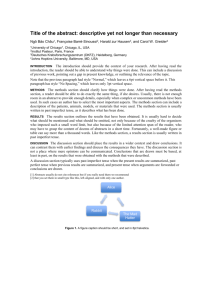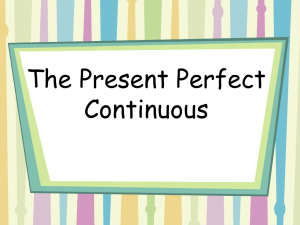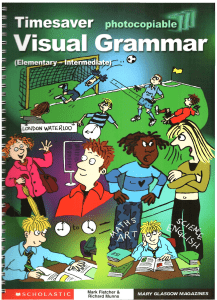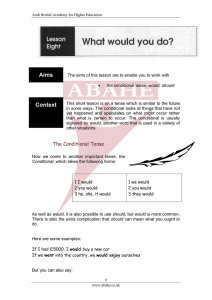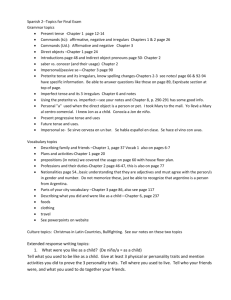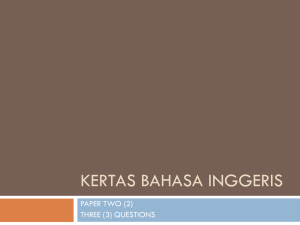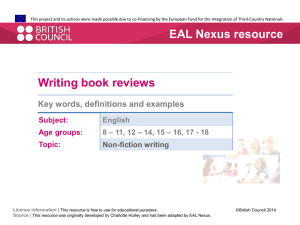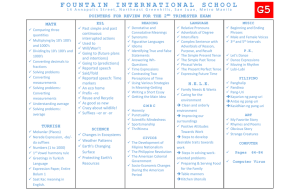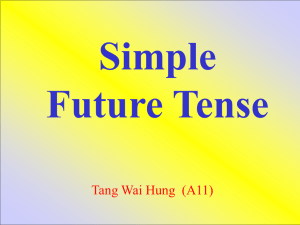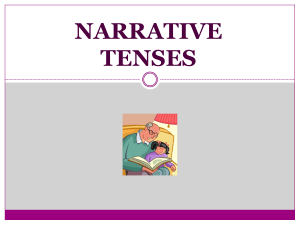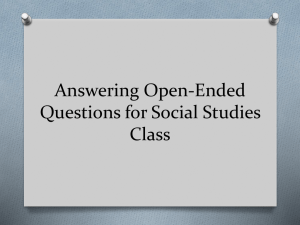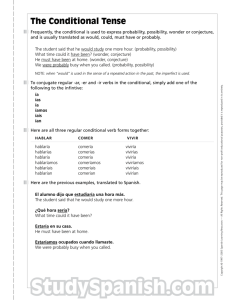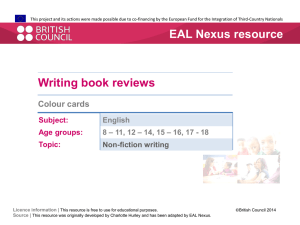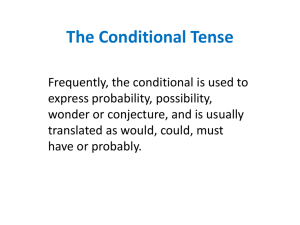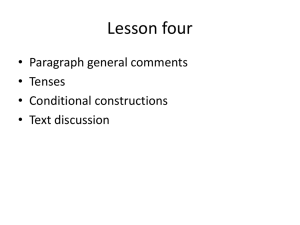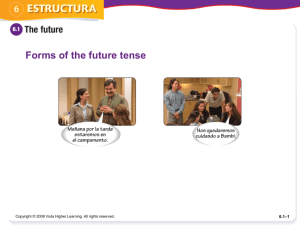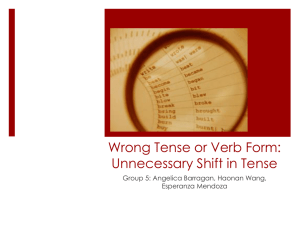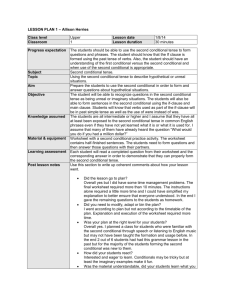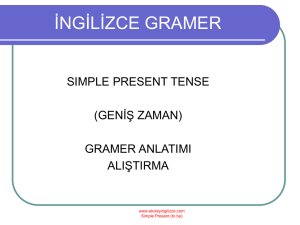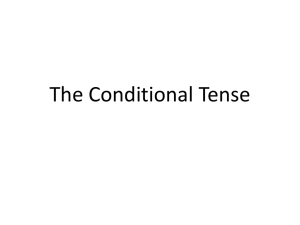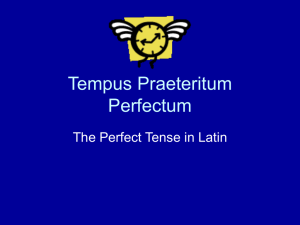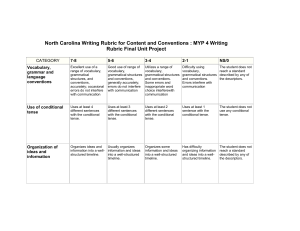Language Objectives - Stevenson Middle School
advertisement
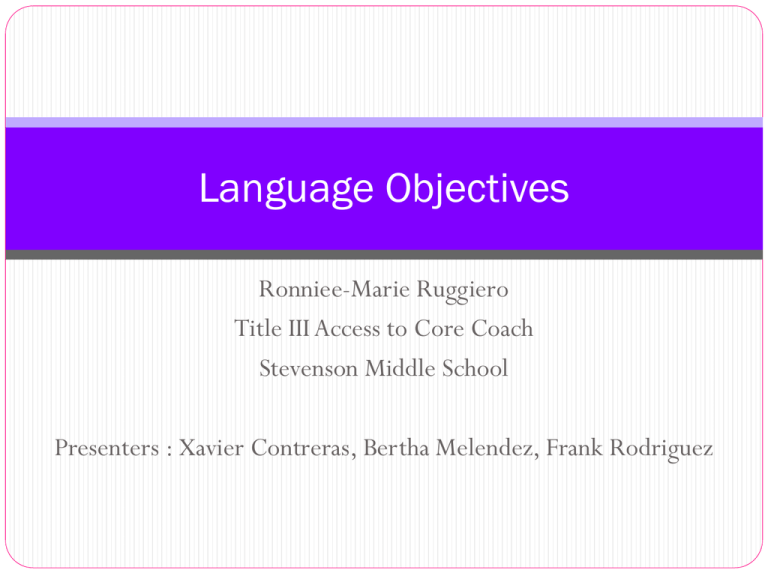
Language Objectives Ronniee-Marie Ruggiero Title III Access to Core Coach Stevenson Middle School Presenters : Xavier Contreras, Bertha Melendez, Frank Rodriguez Today’s Learning Goals By the end of the Professional Development, participants will… Review why we need Language Objectives Understand what a Language Objective is Practice writing Language Objectives Why write a Language Objective? So English Learners understand how reading, listening, speaking, and writing will be used to learn and express content. To identify specific language that will be used by all students to express the content (such as sentence starters or words to express functions, i.e. cause and effect or compare and contrast). To introduce or reinforce academic vocabulary and address key content vocabulary. Stevenson’s English Learners Population This 75% of our student population is why we need to write and inform our students about the Language Objective for the day. “Planning with a Focus on Language Objectives” Silently read the article “Planning with a Focus on Language Objectives” Strategy 1 : Marking the Text (modified) As you read, mark one sentence that stood out to you using an asterisk (*) and mark one sentence that you were unclear about using a question mark (?) Strategy 2 : Think Pair Share Turn to your elbow partner and share the two sentences and together choose one sentence that you will share whole group using one of the following sentence frames: “One sentence that stood out to us was ___________ because ___________.” “One sentence that we were unclear about was _________ because ________.” Strategy 3 : Whip Around Starting from the left, we are going to have one person from each group share aloud their sentence What is a Language Objective? A Language Objective expresses what students will be doing within the lesson in terms of reading, writing, listening, speaking, and thinking. It is the “how” of the lesson. A Language Objective stems from the Content Objective. The three main components of a Language Objective are: Function Form Target Content Vocabulary Language Objectives : Function Function refers to what you want the students to do. They are measurable active verbs. For example, Costa’s Level 1 Costa’s Level 2 Costa’s Level 3 (Know) (Comprehend) (Apply) (Analyze) (Synthesize) (Evaluate) Define Find Label Recall Write Classify Diagram Examine Outline Relate Cite Describe Explain Interpret Summarize Chart Demonstrate Establish Select Solve Construct Formulate Modify Propose Rewrite Argue Critique Judge Prove Support Language Objectives : Form Form refers to the grammar, syntax, patterns, and structures you expect students to use. For example, • Cause and Effect Transitions As a result of _______, ________ occurred. • Conditional Tense If __________, then _____________. • Progressive Tense (verb + ing) The ___________ is/are going to ___________. Language Objectives : Vocabulary Vocabulary refers to the 5-7 target words that your students need in order to accomplish the objective. Keep in mind that this vocabulary should be: * Needed to express ideas about a specific topic * Content-specific * Words that students are expected to produce in discussions, in answering comprehension questions, in any task that requires language production * Encountered in future readings * Frontloaded and practiced in context Content Objective Language Objective Content Objective : The “what” of the lesson Language Objective : The “how” of the lesson •Identifies what students should know and be able to do in a particular subject area •Identifies what language students should know and be able to use while using English to accomplish a task •Guides teaching and learning •Supports student language development •Supports content area standards and specific learning outcomes •Is aligned to a Content Objective •Should be stated simply, orally and in writing •Should be stated simply, orally and in writing Which is it? 1. 2. 3. 4. 5. 6. Students will explain the basic uses and procedures of word processing software using transition words that show time, chronology, sequence. Students will justify the character’s decisions using the past perfect tense. SWBAT explain how the United States developing into different regions, economically and culturally, caused the Civil War. The student will be able to summarize the complete set of rules for the order of operations, including brackets and fractions. Students will use the future tense and conditional mode to predict the impact of a natural environmental change on the organisms in an ecosystem. SWBAT explain multiple ways to monitor heart rate intensity. Explain the results of a plant experiment. Conditional Phrases Soil, nutrients, deprive, essential, dehydrate, superlatives (large, larger, largest) Time to practice! Working in grade level groups, complete the T-chart “Content and Language Objectives” for the remainder of the time (there will be a share out at the end). Use the pie chart and the resources you were asked to bring with you as references. A sample sentence frame for Language Objectives is… Students will ______________ using _________ including words such as ____________________. Sharing of Language Objectives Strategy 4 : Give One, Get One *Each group member is to write one Language Objective that they came up with on an index card *For the next 5 minutes, you will go to at least two other department members (not from your grade level) and orally share your Language Objective Thank you for participating! Please complete the feedback & reflection form before you leave. If you would like more information or assistance with Language Objectives, please contact our Title III Access to Core Coach, Ronniee-Marie Ruggiero in room 51 or by email at rmr6002@lausd.net
